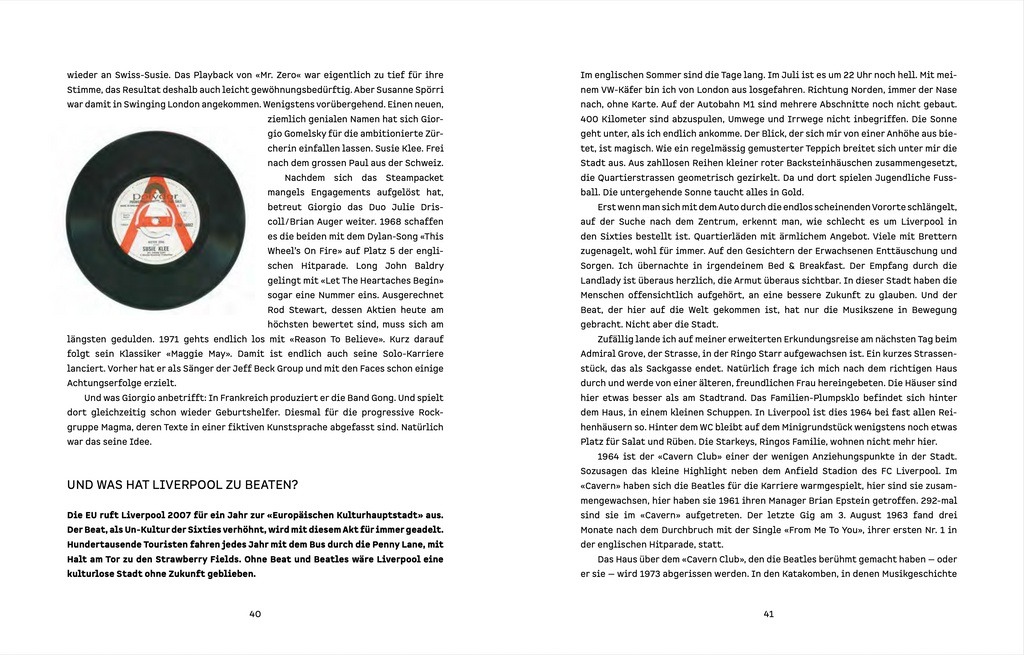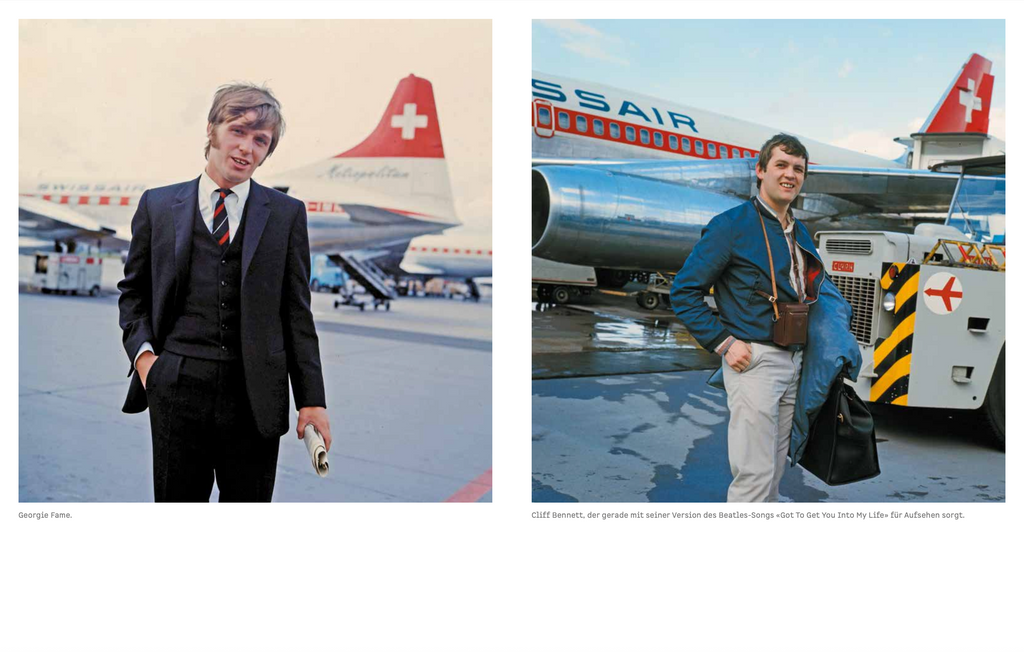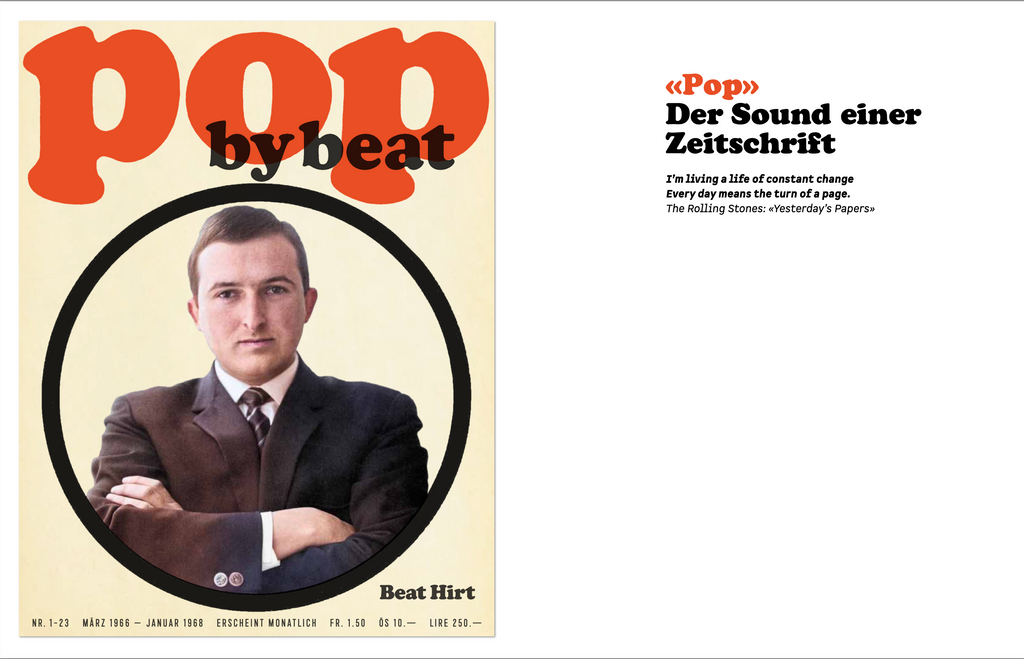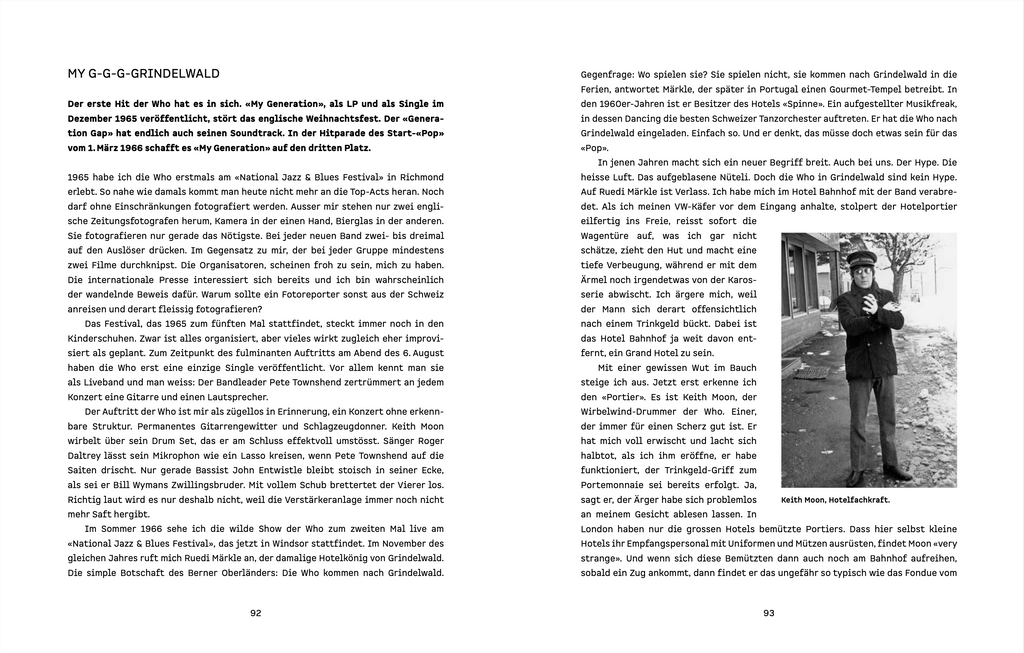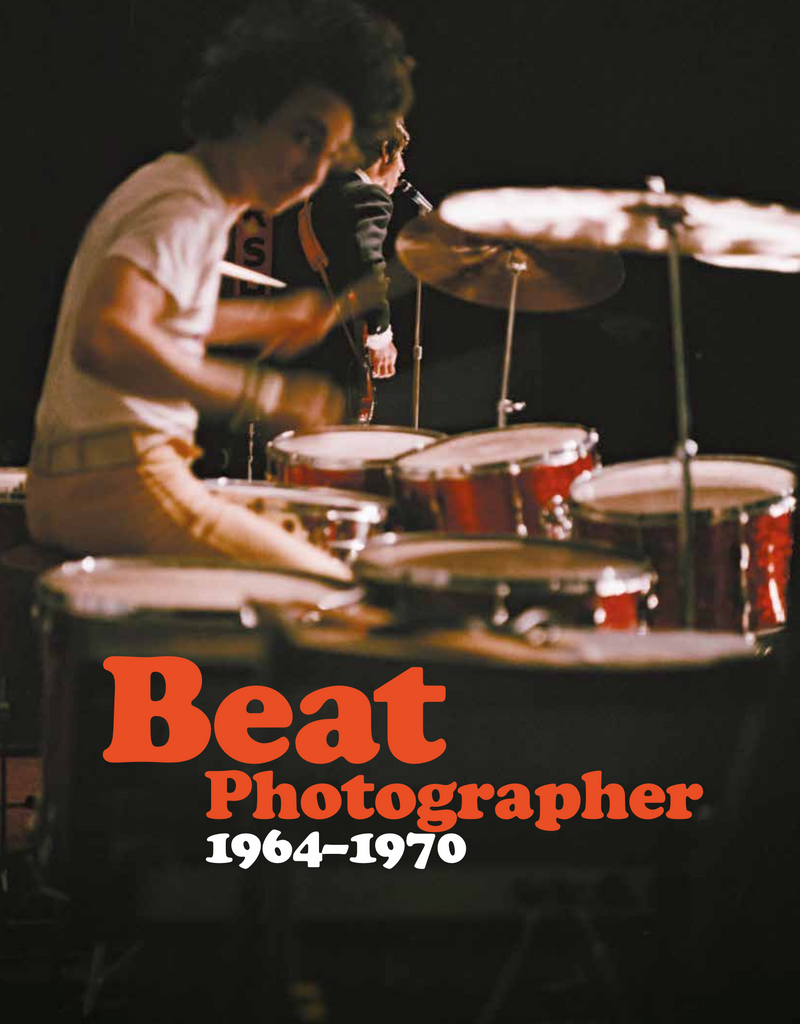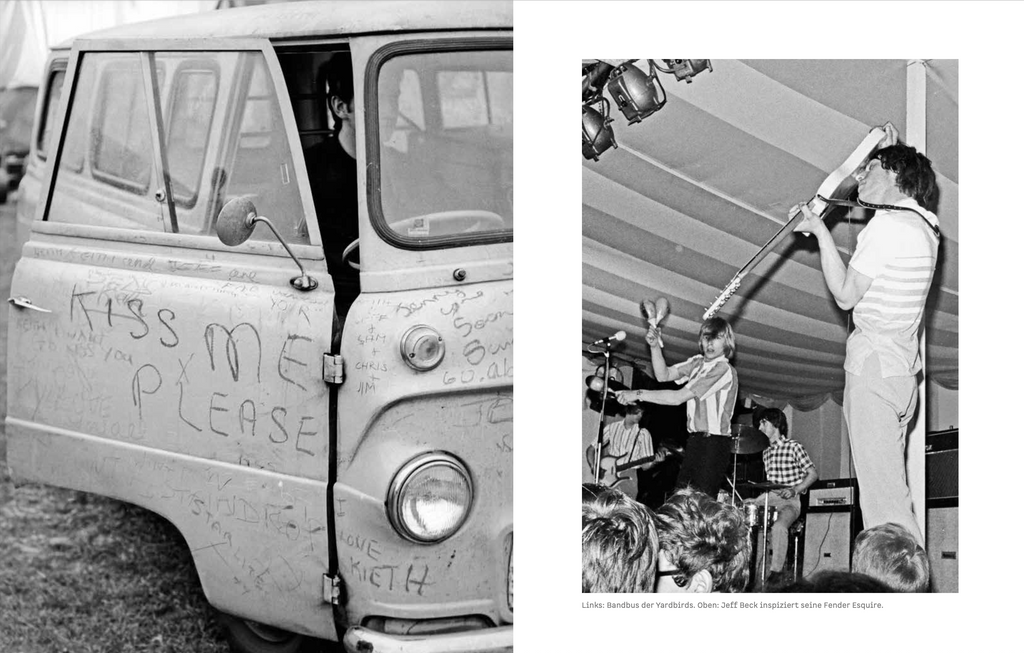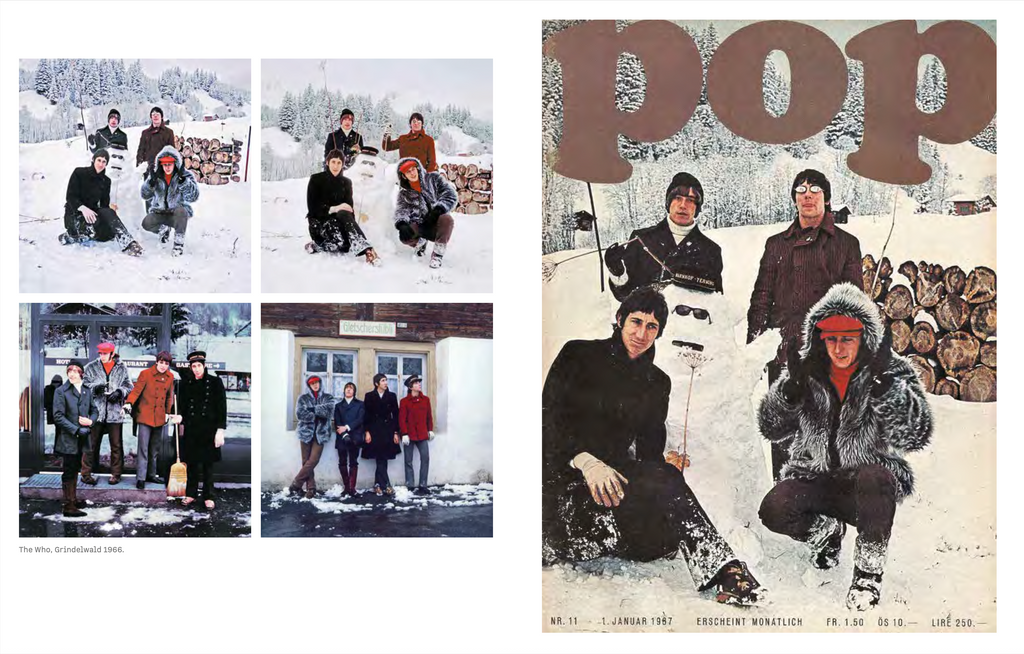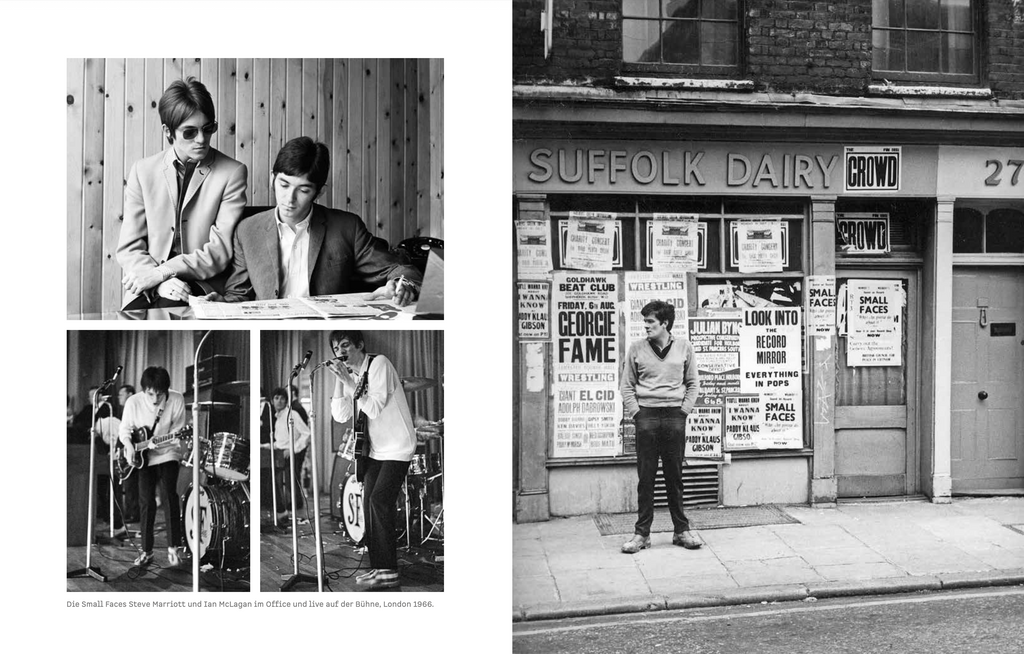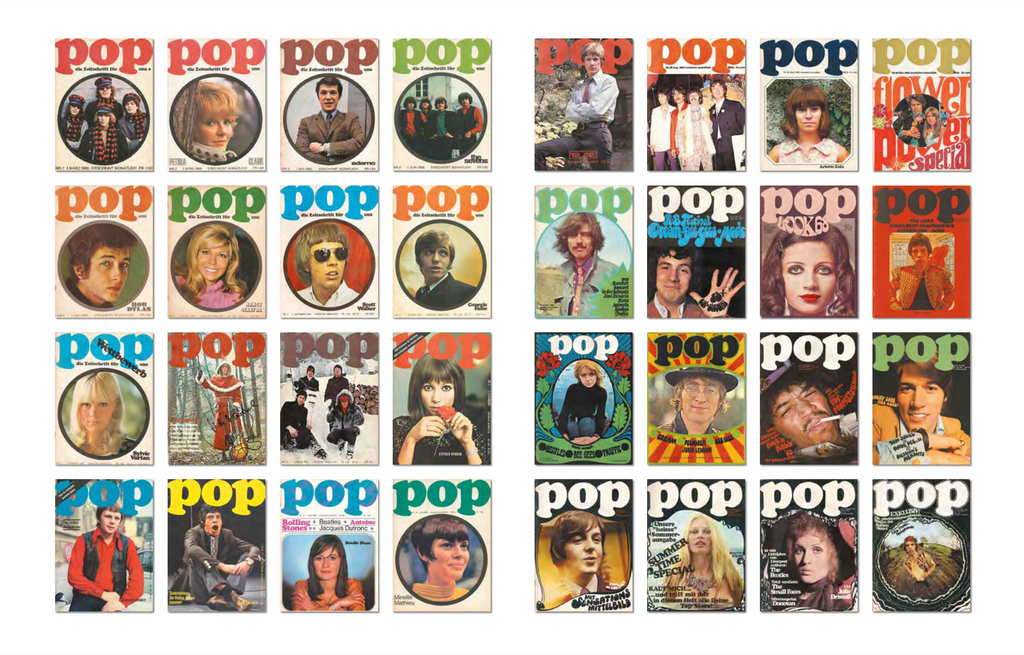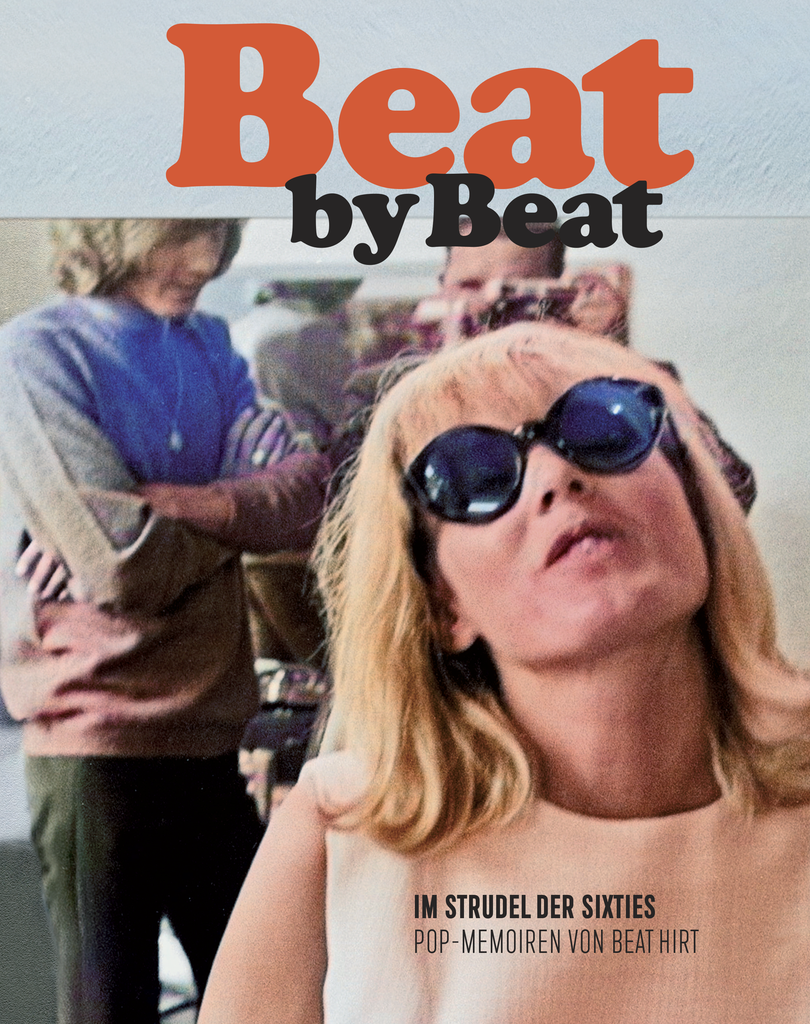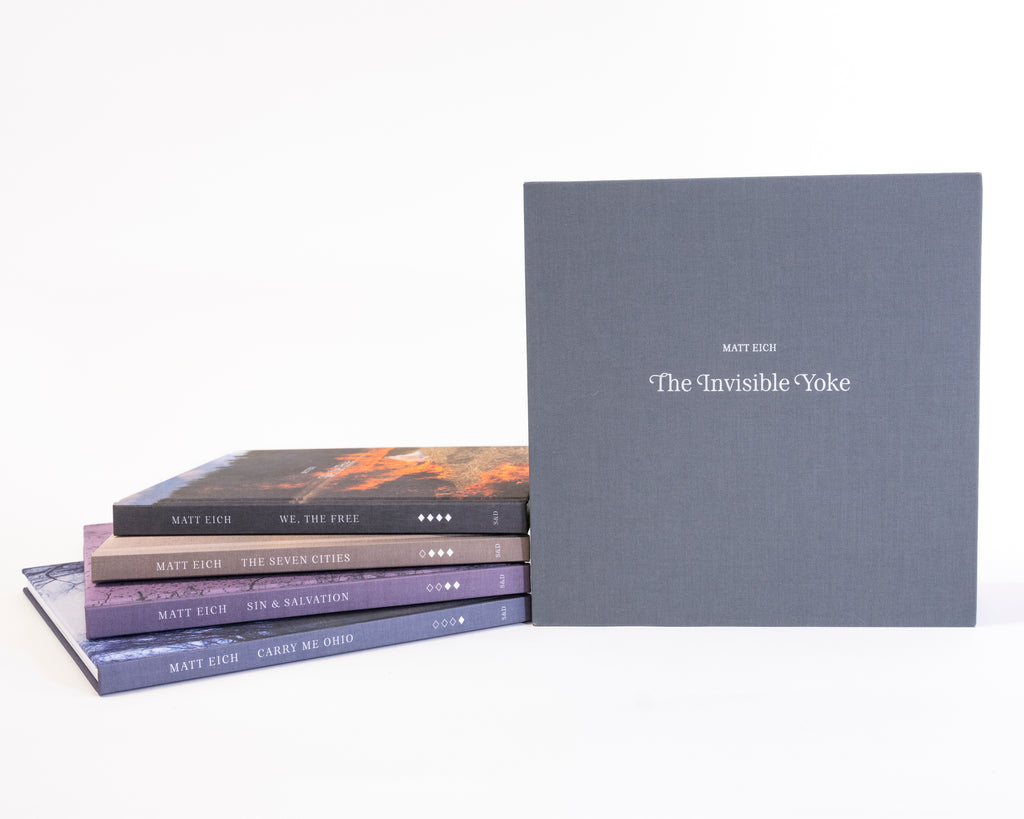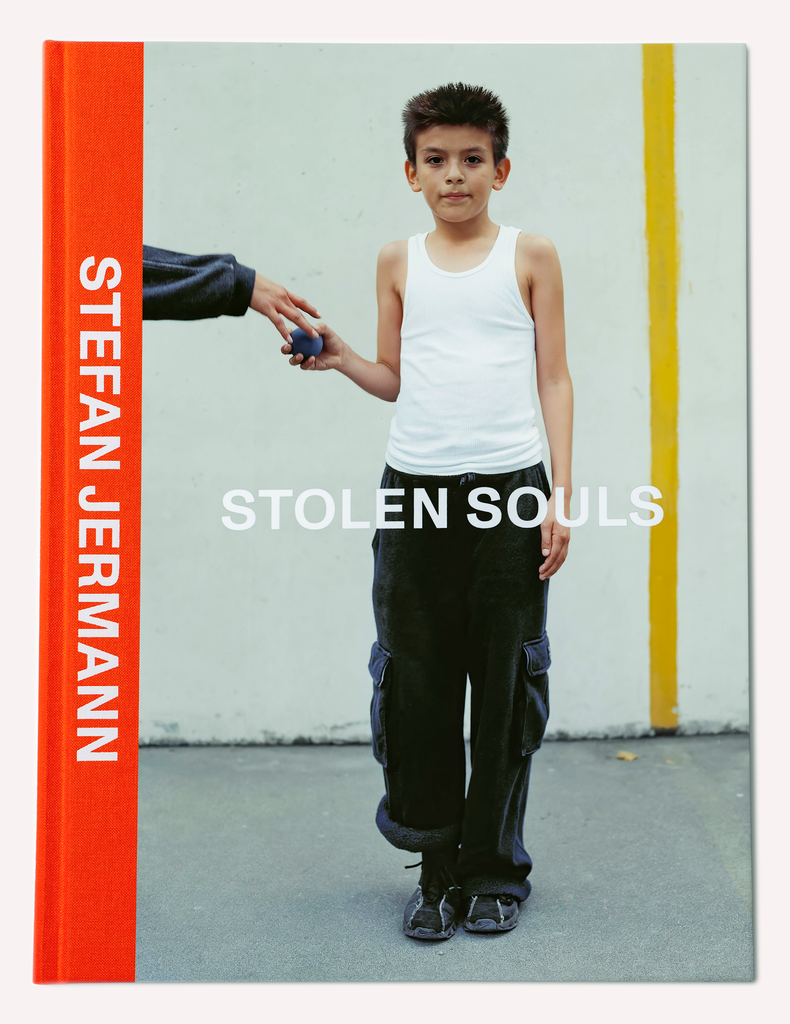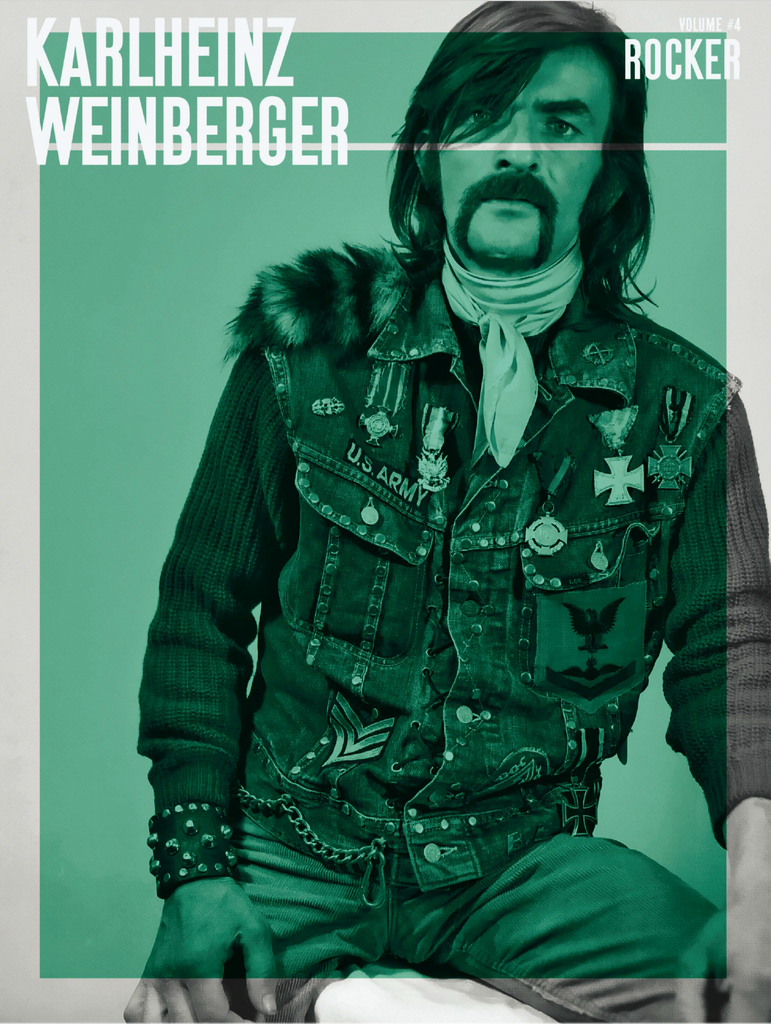Follow
Newsletter - Subscribe for news and updates
Cart
Your cart is currently empty. Click here to continue shopping.
This product is currently sold out.
Beat (BEh-Aht) Hirt (1939-2024) was Switzerland's first pop journalist. Here are his memories of the sixties. Cheeky, crisp, no sugarcoating.
"This book is a mix of memories, reappraised a half century after the musical big bang in Liverpool. The birth of the rock age, as I experienced it as a photographing reporter between Zurich, Paris and London. The awakening of a scene before my eyes and in my ears. Suddenly being right in the middle of it, almost by chance, has left a lasting mark on my cultural DNA."
With 130 photos of Bob Dylan, The Rolling Stones, The Kinks, David Bowie, Janis Joplin, The Who, Les Sauterelles and many more.
Published by Samuel Mumenthaler (texts only in german).
Beat became a music enthusiast at an early age and was “infected by the record virus,” as he himself put it. He loves jazz and even takes trumpet lessons at the age of 17. However, he fails to make any musical progress, so Beat gives up the horn and switches to the typewriter. From 1958 onwards, he writes a major series on jazz for the Boy Scout magazine “Allzeit Bereit” (Always Ready). Scouting remained an important part of Beat's life into adulthood, and he was given the scout name “Bazillus.” He attended camps and was involved in the scout choir, which even made it onto television in 1959 (Beat was already twenty by then). After graduating he worked in the private sector and for the American consulate, tried his hand as a reporter and announcer at Radio Zurich, wrote copy for an advertising agency, unsuccessfully attempted to become a taxi driver, and set up his own record distribution company under the catchy name “Hibea Trading.” Only in his private life did he like to be committed. In 1966, he married Yvonne Léger, who shared his passion for writing. The couple remained together for 60 years.
Journalism increasingly crystallized as his calling and possible profession. He continued his education on his own initiative, attending photography and public speaking classes. The editors at Schweizer Illustrierte loved the novice's ideas and crisp writing style. Because he clearly understood the “music of the young” and was able to appeal to the neglected audience segment of teenagers, he received more and more assignments. He wrote his first cover story in 1963 about the then unknown Pepe Lienhard, who was performing with his big band at the amateur jazz festival in Zurich. But Beat soon switched to beat.
He became an early promoter of the “new wave” from England. He traveled regularly to London and Paris, listened and took photographs. During his unannounced visits to record companies, management offices, and television stations, Beat would pull out his business card and thus gained access to the backstage area of a new pop world that would prove to be more lasting than he had imagined. But Beat never broke with jazz. His favorite musicians of the Beat wave were rhythm and blues musicians such as Alan Price and Georgie Fame, who themselves had a jazzy background.
When Beat launched his own magazine, Pop, together with Jürg Marquard and Susanne Bihrer in 1966, he was already a solid journalist. Thanks to his contacts and the numerous photos he had taken on his trips abroad, Pop came across as astonishingly professional from the very first issue. But Beat knew little about business. Soon, he lost heart in view of Pop's sluggish business performance. He abandoned the supposedly sinking ship, which, to everyone's surprise, Captain Marquard steered into safer but also shallower waters. Beat had plenty of alternatives in prospect. Ringier Publishers want to bring him on board for the magazine “Tele,” he can produce reports for Swiss television, and soon he is reporting for the trade magazine ‘Musikmarkt’ from Switzerland. Nevertheless, Beat cannot and will not close the “Pop” chapter. He continues to write about records and other topics as a freelancer. Until his style becomes outdated and his contract is terminated. A difficult moment for Beat. It's like your own child no longer inviting you to their birthday party.
In 1977, Beat attempts to break into the “active” pop business. He rewrites the William Tell myth as a pop musical and finds investors and music stars who are willing to get involved in his project. But the project is too big for a small country like Switzerland. “Tell” fails spectacularly. Beat is not discouraged by this failure. As an all-rounder, he is used to switching from one horse to the next. He continues to work for radio and television, and when the television market is liberalized, he starts his own film company, “Mesch & Ugge,” at the age of sixty. He produced various documentary films for the company, including music-related ones such as the series “Back Around The Clock” about the history of pop music in Switzerland. He portrayed Swiss private radio pioneer Roger Schawinski in the feature-length pirate saga “Jolly Roger,” thus returning to his roots as a young reporter who visited pirate radio stations off the English coast.
Outwardly, Beat looks like a foreign body in the colorful pop circus of the sixties with his short haircut and proper suit (he only cultivates his casual Hemingway look in later years). Musically, too, Beat did not follow all developments. When rock music became more experimental, less catchy and less audience-friendly, he rejected it. It reminded him of the developments in jazz that had turned him into a pop convert. He couldn't relate to the progressive blues of Jimi Hendrix, for example. Beat's preferences lie with music and popular culture (from cabaret to theater to film) that are accessible to a wide audience.
He remained enthusiastic about pop music until the end, for example, when he and his wife Yvonne saw an old rock legend perform live somewhere in his second home of Hawaii. Until the end, Beat also liked to look back on his pioneering years in pop music. Not bitterly, but also not idealistically. Just like a thoroughbred journalist of the old school.
Author: Beat Hirt
Edited by: Samuel Mumenthaler
Format: 22cm x 28cm, Hardcover, bound
Pages: 260
Design: Martin Schori
Letzte Exemplare. 2. Auflage ab Ende Januar lieferbar.
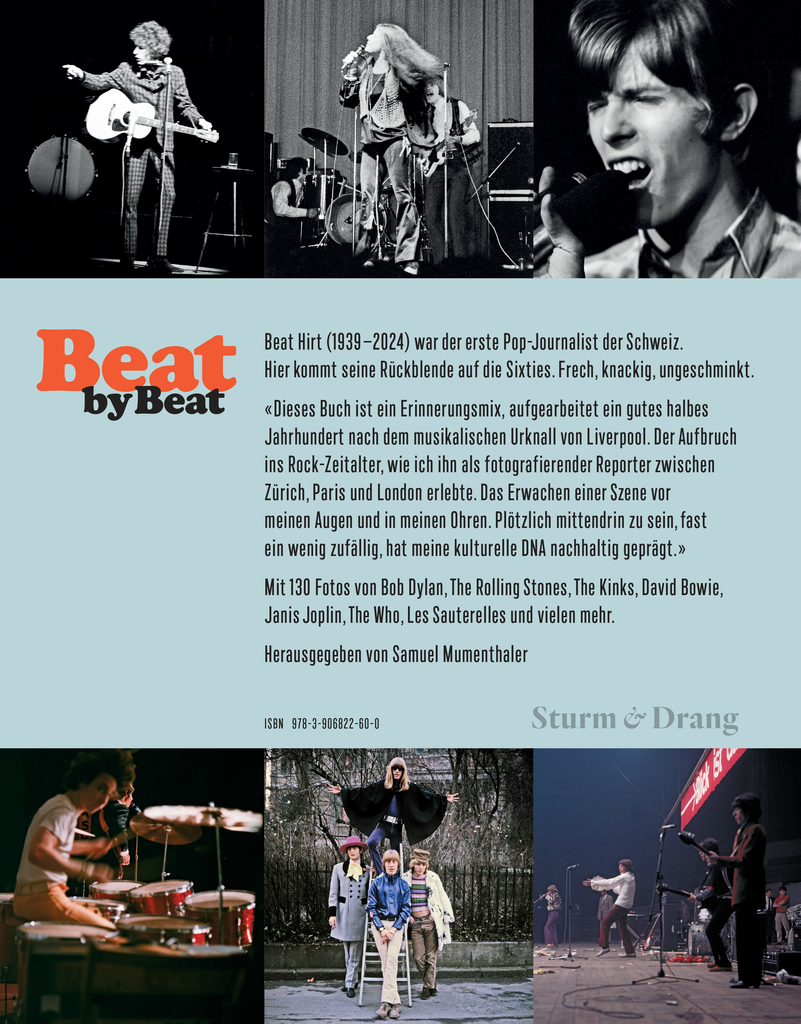
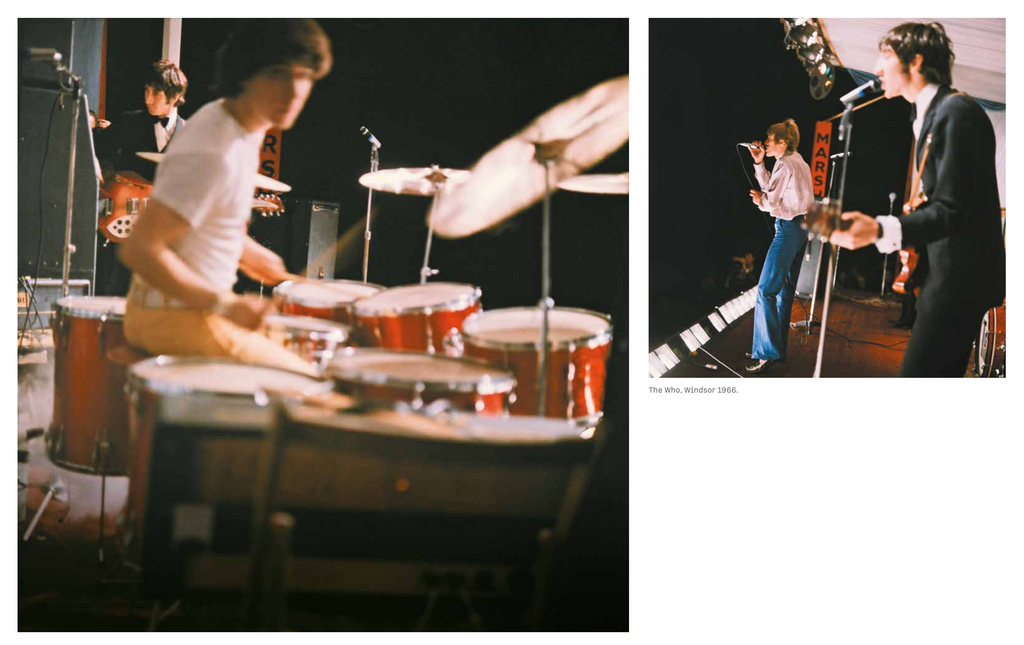
Newsletter - Subscribe for news and updates
